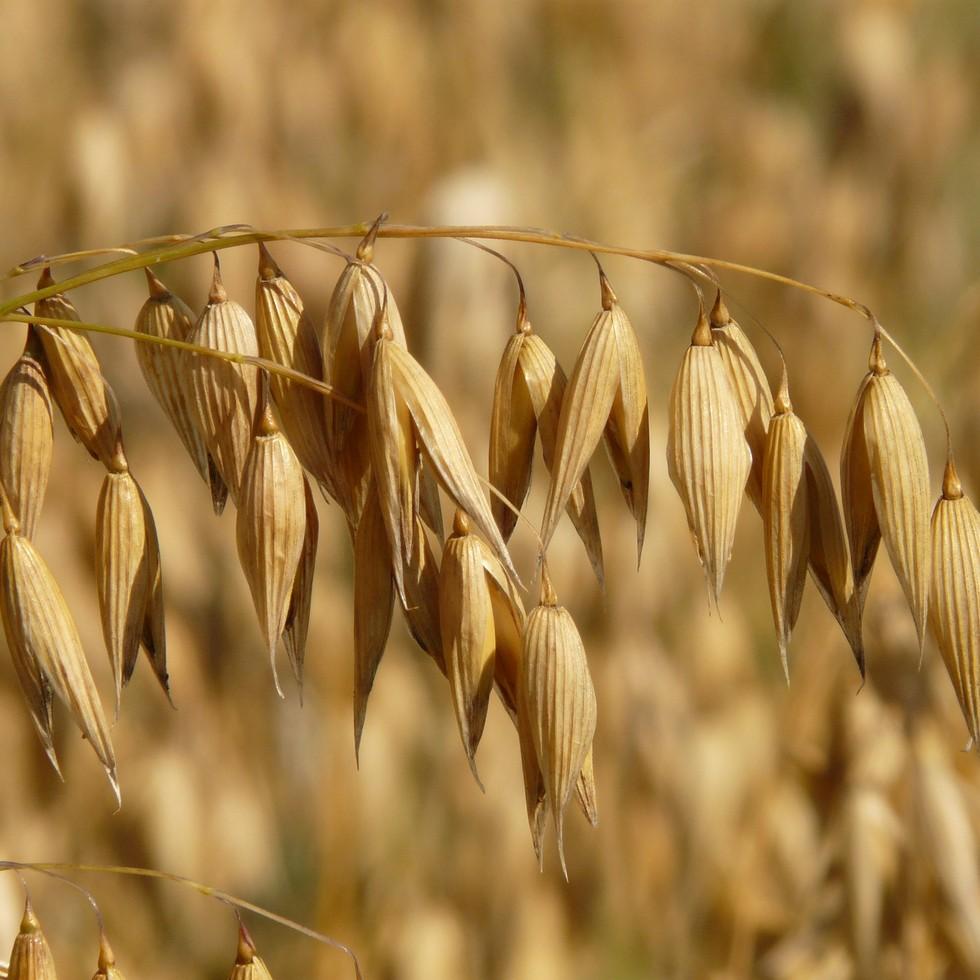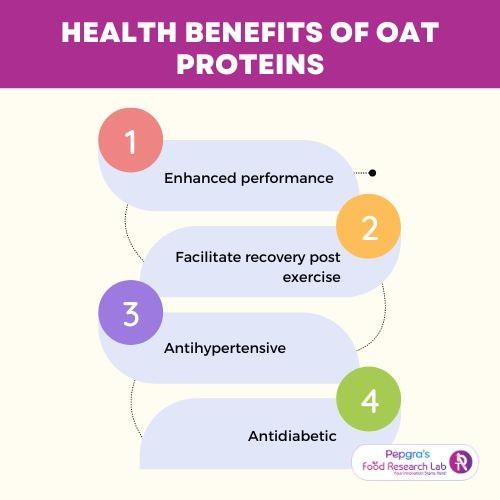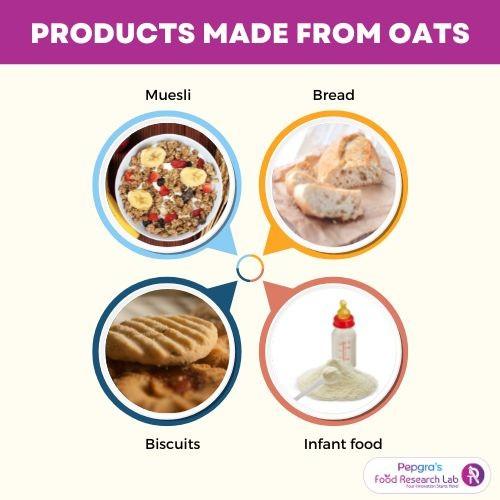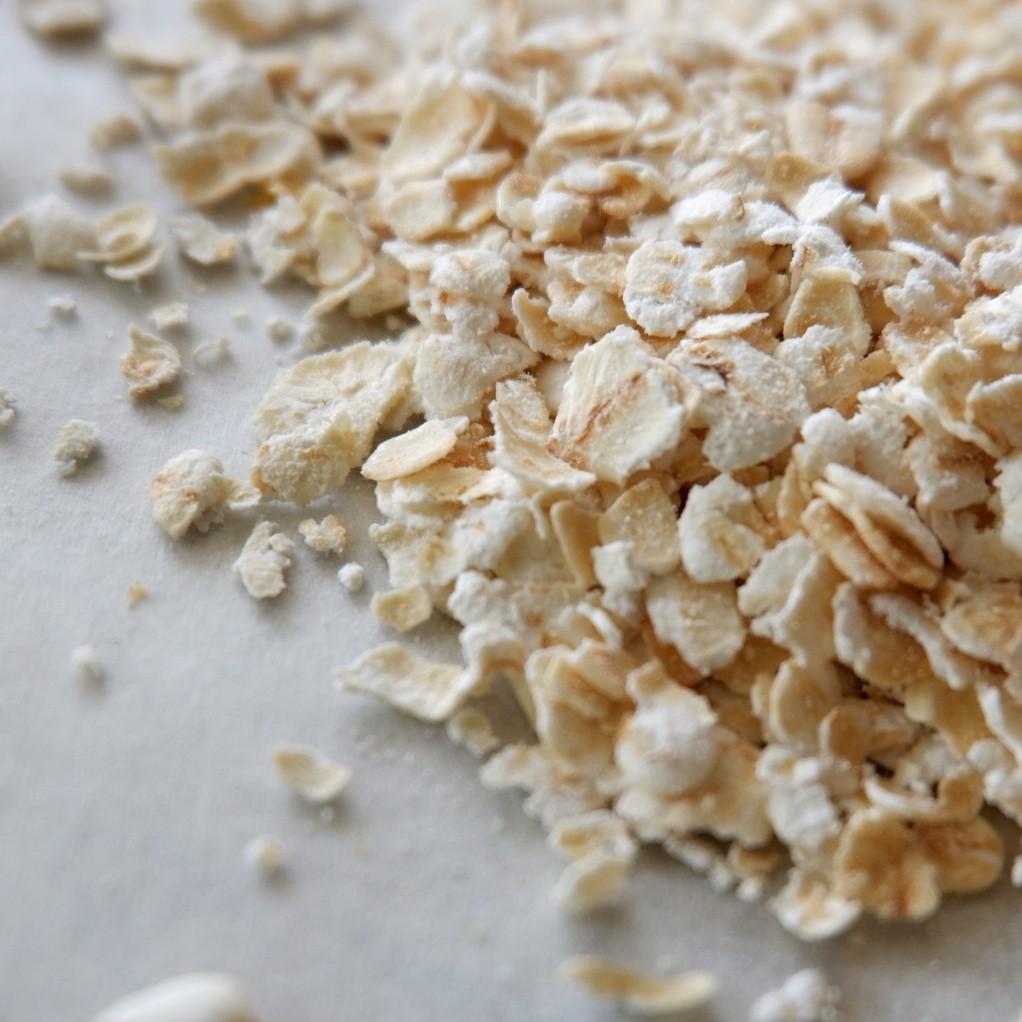
1 minute read
Health Benefits of Oat
Proteins
• Studies on the effectiveness of oat proteins and hydrolyzed oat protein revealed that swimming endurance was enhanced after consumption. Oat proteins also demonstrated an anti-fatigue activity, although the exact mechanism remains unclear.
Advertisement
• Moreover, consuming about 25g oat proteins every day enabled muscle recovery post-exercise and decreased the adverse effects on the knee and joint motion, making it an ideal post-exercise supplement.
• Substances called oligopeptides are derived from hydrolyzed oat proteins and have biological functions such as antioxidant, anti-inflammatory, antidiabetic and antihypertensive properties.



Applications of Oat Proteins


• Oats have been conventionally consumed as hot cereal in the form of oatmeal, where hot milk is added to oats. Fruits, dry fruits, chia seeds and honey are added to enhance the taste of oatmeal [1].
• Other products made from oats include muesli, bread, cookies, infant food and granola bars. Oat is suitable for infant food owing to its nutritional profile, hypoallergenic nature and taste.
• Infant food based on high-protein oats can facilitate healthy weight gain in infants sensitive to lactose [2].


• With advancements in food technology, oat proteins can be isolated.

• These protein isolates can be dry or wet-extracted, and peptides with bioactive properties can be released with subsequent hydrolysis.

• However, the application of oat protein as an ingredient is limited among food and beverage manufacturers.

A recent study revealed that meat analogues could be formed from oat proteins after pretreatment, followed by extrusion cooking. The resulting product had lower antinutrient content, making it more nutritious, and improved sensory characteristics such as appearance, chewiness and flavor [1].

Oat proteins can act as alternative ingredient for dairy-free yoghurt; however, the effect on amino acid content due to fermentation was negligible [3].
Since oat proteins are relatively heat stable, they are the preferred food ingredients for those that need structural stability after heat treatment.
Owing to its antioxidant activity, oat proteins could be used to formulate nutraceuticals [2].

Conclusion
• Oats have been valued for their nutritional profile, and oat proteins could be a suitable ingredient for preparing food and beverages.
• However, more research needs to be done on developing oat proteins as an ingredient for greater application in the food and nutraceutical industry.





